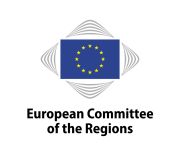
European health and care systems have increasingly been transitioning towards greener, more digital solutions. Skills are key factors in supporting this transformation, empowering the healthcare workforce and creating more sustainable ecosystems. The session will explore the role of regions in spearheading green and digital up- and re-skilling, as part of a strategic blueprint for sectoral cooperation across Europe and within the EU Pact for Skills and the Year of Skills.
- Rural | Local and regional | EU/ European | Sustainable | Governance and Public administration | Cohesion | Demographics (depopulation and ageing) | Health | Social inclusion and Equality | Education and culture | Digital and ICT | Jobs and Employment | Research and Innovation
- Code: 11WS2475
- Jacques Delors building, JDE 51
Practical information
- When
-
Wed 11/10/2023, 14:30 - 15:30 CET
- Where
- Jacques Delors building, JDE 51
- Type of partnership
- Partnership
- Format
- Workshop
- Theme
-
Promoting social innovation
- Language
- English
- Website
-
https://www.euregha.net/
- Social media
-
@EUREGHA
@European Regional and Local Health Authorities
@EUREGHA
@EUREGHA
Partner

Documents
Reporting
Session summary
On 11 October, EUREGHA, together with the Committee of the Regions’ NAT Commission and Interregional Group on Health and Well-being, organised an insightful session within the framework of #EURegionsWeek and the EU Year of Skills 2023 to discuss the importance of digital and green skills within the health sector, with a spotlight on the role of regions in spearheading up- and re-skilling of the healthcare workforce and voices from EU-funded projects BeWell and EUVECA.
George Valiotis presented the BeWell project, that aims at preparing the healthcare workforce and ecosystem to tackle existing and future challenges. Upskilling and reskilling are important to support human capital development in Europe overall. BeWell is built on four pillars: developing digital and green skills intelligence, developing a Skills Strategy, launching a large-scale skills partnership under the Pact for Skills initiative, and implementing pilot training programmes on digital and green skills in the healthcare sector. The Strategy is a roadmap that advocates life-longing learning and continuing professional development. There are calls on policymakers to integrate the needs of the health and care workforce into the design and implementation of policies at local/regional, national, and ultimately, European levels.
Henriette Hansen introduced the EUVECA project, which addresses six megatrends: ageing population, chronic disease and co-morbidity, digitalisation, personalised care and prevention, modern health consumer, and playing an active climate role. To address these megatrends, skills such as creativity, leadership, communication are all seen as important and as in need of being promoted. Each region is working to establish a hub, which objective is to create collaboration and coordination between healthcare providers. The objective is to think outside of the box and create new ways of learning. The aim is to create a more real world of learning opportunities, and to create more mobility. On the European level, they are preparing a European Platform for VET excellence in healthcare, with the aim to develop all kind of training that focus on the six megatrends. European meetings will be organised, and users can find interesting webinars that can also be used in their education programs.
Birgitta Sacrèdeus addressed what are the challenges induced by workforce shortage and stressed the importance of digitalisation. For instance, Sweden really benefited from digitalised tools and systems, since areas that are scarcely populated can be more easily managed, for example by sending medical buses that travel around to do check-ups. This is also very useful for people that have mobility impediments. Thanks to digital tools it is possible to provide mental therapy or assistance, online. Digital tools are also useful for training and education. She talked about an online course that provides basic guides and training to people that want to become nurse, and an app that for cases of hearth attack, informs you when someone near you is in need for assistance. In conclusion, she said that another important step should be made with AI, since it could really help with future issues, but could already help us find modern solutions.
Quotes
-
If we do not address the issues that the health workforce is facing, we will not have healthcare systems in the future (…) we need to do our best for the EU to remain competitive, build, keep and attract talents, and create a stronger leadership globally.
Regions are now working to establish labs where healthcare providers are trying to create local-based activities assuring better healthcare, trying to break down the silos, especially within the educational sector.
We need to think about how regions can be instrumental in tailoring education and training initiatives to local and national needs, fostering innovation, engaging communities, and ensuring that EU-wide healthcare policies are implemented at local level.
Regional authorities play a key role in delivering healthcare services: the European Health Union has the potential to make real difference in the lives of people across the EU, but it can only succeed if local and regional authorities are at the centre



